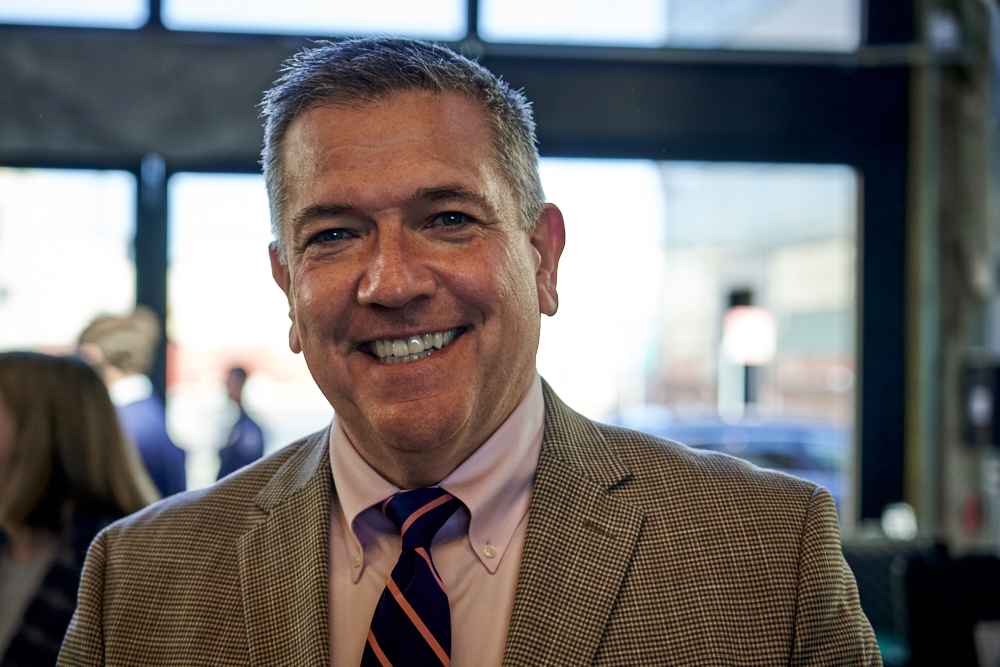Here’s more of what State Sen. Scott Wiener has done to San Francisco:
The Board of Supes Land Use and Transportation Committee will consider legislation Monday/29 that would offer a huge financial windfall to market-rate developers at the expense of affordable housing.
The measure, by Sup. Bilal Mahmood, would undo decades of city policy mandating that market-rate developers pay to build a limited amount of affordable units at the same time they build their luxury projects.
The idea is simple: When market-rate units come online, they create a demand for affordable units. (They also create a demand for new Muni service, parks, schools, police, fire, and other city services that their property taxes typically don’t cover.)
Some developers include affordable units in their project mix, so those apartments are available at the same time as the luxury ones. But a lot of others pay fees instead—and those fees are due when construction starts. In theory, this means construction can also start on affordable projects.
But Wiener passed a bill in 2024 banning cities from collecting affordable housing fees until the luxury project is complete and open for occupancy.
California Yimby supported the bill, because it’s supposed to make it easier for developers to make more profit on their luxury projects, so more of that type of housing will get built. In the meantime, the affordable units will lag years behind (and if a luxury project gets built, then the units don’t sell, and the developer goes into bankruptcy, the affordable housing might never get built at all).
So now the city is supposed to change its laws to be consistent with the latest of What Wiener Wrought. That meeting starts at 1pm.
Eight times since January 2025, a private lobbyist representing the San Francisco Deputy Sheriff’s Association met with Sup. Matt Dorsey, a big ally of law enforcement, records on file with the Ethics Commission show. The subject was something called “Protecting San Francisco.”

On Monday/29, the Rules Committee will consider an item that would add Protecting San Francisco to the list of charitable organizations that city employees can support with payroll deductions, along with such groups as the Asian Pacific Fund, Bay Area Black United Fund, Community Health Charities of California, EarthShare California, Global Impact, and United Way of the Bay Area.
Protecting San Francisco, according to the legislation, is “a non-profit organization supporting San Francisco Deputy Sheriffs and their families.”
Fair enough. But it doesn’t take much research to show that Protecting San Francisco has done very little since it was founded. Its website talks about “helping inmates re-enter society,” which is a fine idea. The program hasn’t launched yet.
Documents on file with the Internal Revenue Service show that the biggest expense this group has paid, a little more than $4,000, went for “funeral services.”
Again: Fine. But most groups that the city puts on the list for employee donations are well established, with long track records. Now: this one.
It raises a larger question: Why is the city using its resources to direct employee donations to certain specified nonprofits, when employees are free to donate on their own to any charity that they choose? After the scandal around the Parks Alliance, shouldn’t the folks at City Hall be a little more careful about where they are directing money?
The Rules Committee meeting starts at 10am.
The city wants to buy a building at 1660 Mission for $18.5 million. The facility, according to the Budget and Legislative Analyst, would become home to the (1) City Clinic, (2) Behavioral Health Access Center (BHAC), (3) Office-Based Buprenorphine Induction Clinic (OBIC), (4) Behavioral Health Services Pharmacy, (5) Office of Coordinated Care, (6) Behavioral Health administrative functions, and (7) a new law enforcement drop-off behavioral health program that is part of the Mayor’s Breaking the Cycle Initiative.
It’s going to cost another $56 million to renovate the place.
The money for the purchase will come from Prop. C, the 2019 tax on the biggest businesses in town that’s supposed to fund services for homeless people. Some of what this purchase will do appears to qualify. The renovation money will come from “general obligation bonds” and a state grant. Not clear which bond money is involved.
The BLA says the city will save $1.7 million by moving out of space it currently leases and into a building it owns.
In today’s wildly depressed market for commercial real estate, it makes perfect sense for the city to buy property. If there’s Prop. C money, or Prop. I money available (and if the mayor wants to spend it, there is), here’s another alternative:
Veritas investments owns 66 apartment buildings with 1,566 units—and they are all facing foreclosure. That means those buildings could be sold at auction—quite possibly for far less than their market value.
Someone from the city could at least show up and bid on those buildings; it might be a lot cheaper to buy existing housing stock and convert it to land trust or affordable housing than to build new units.
The time to buy and land bank is when prices are low. Like now.







